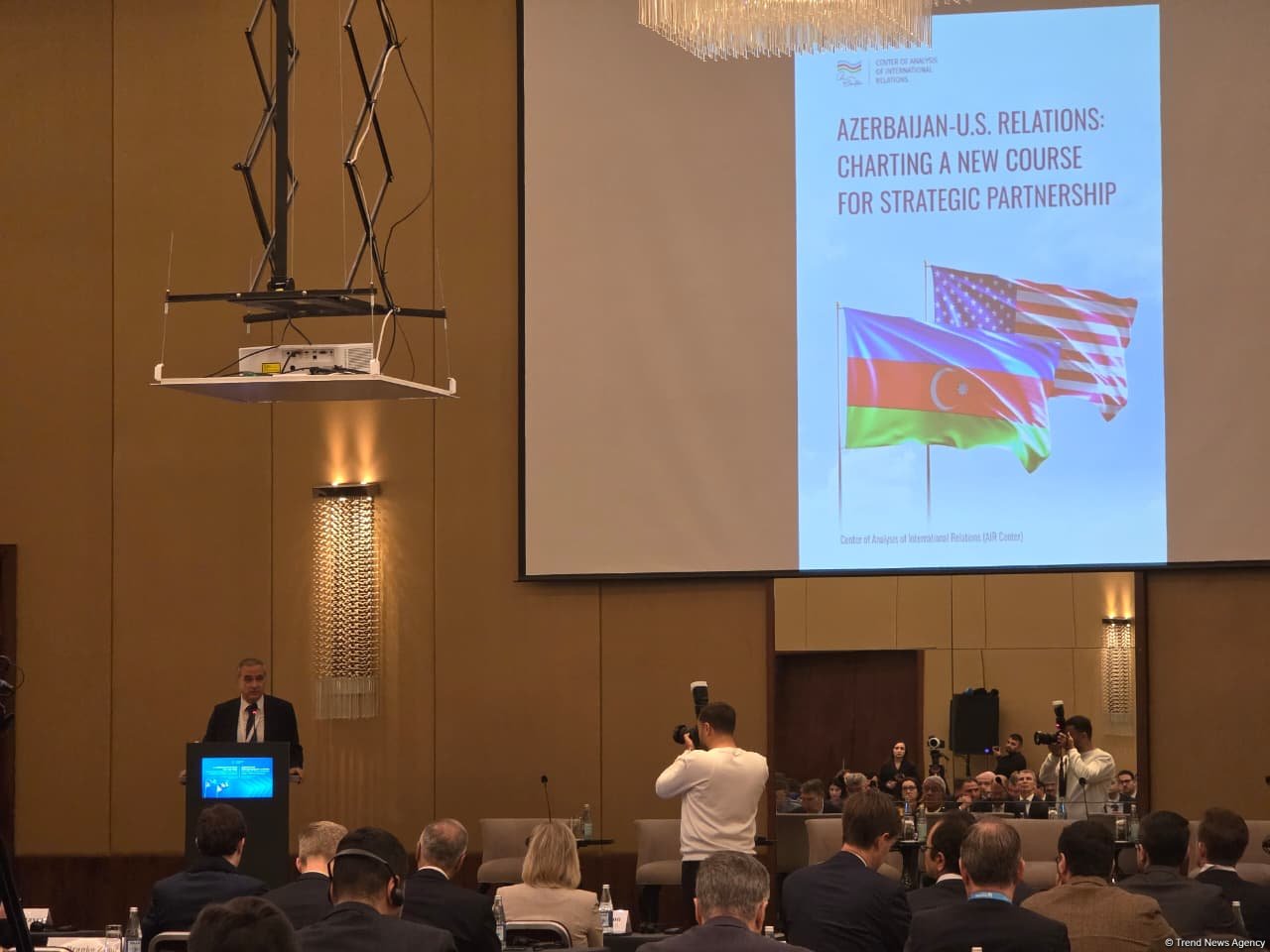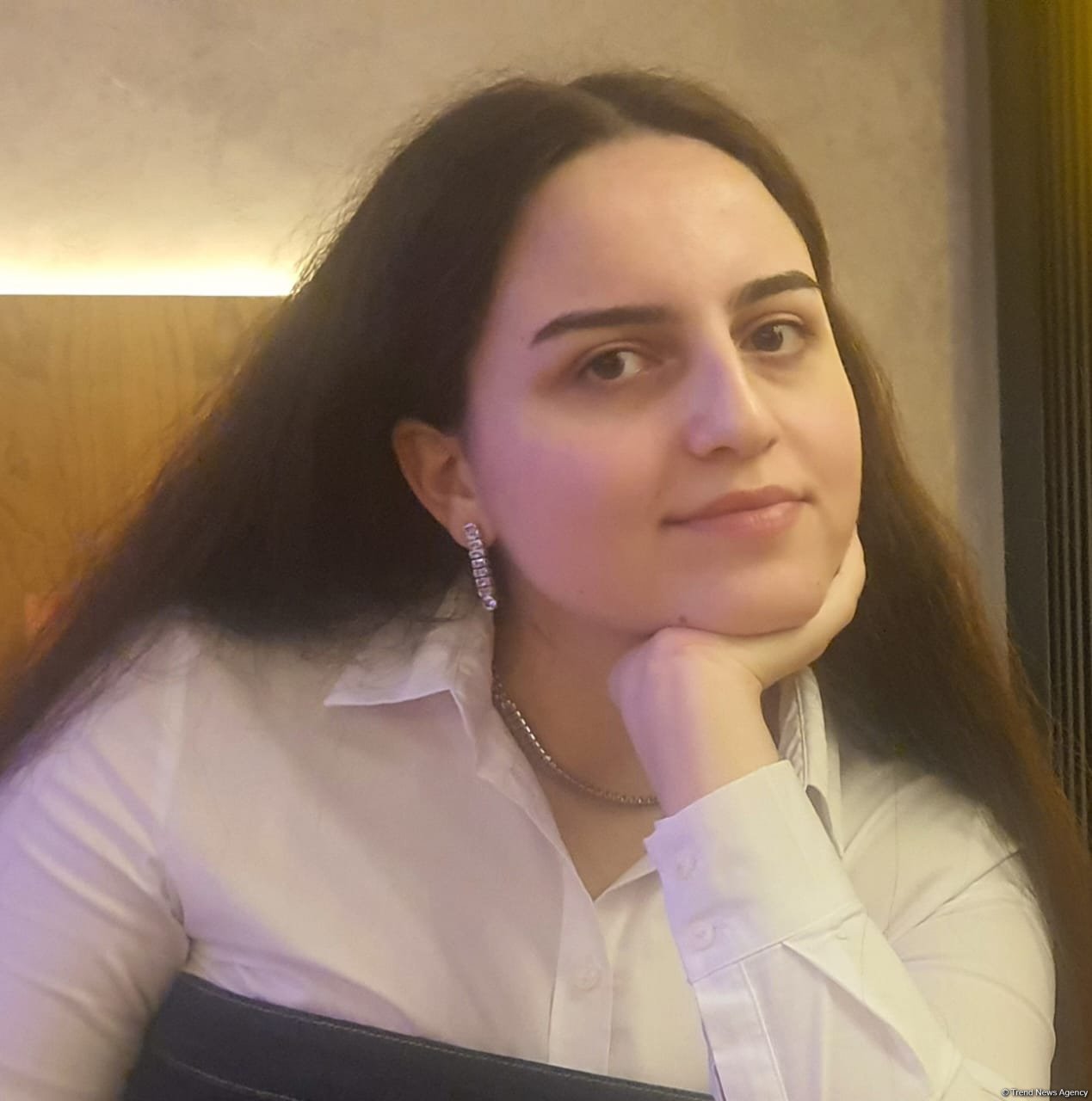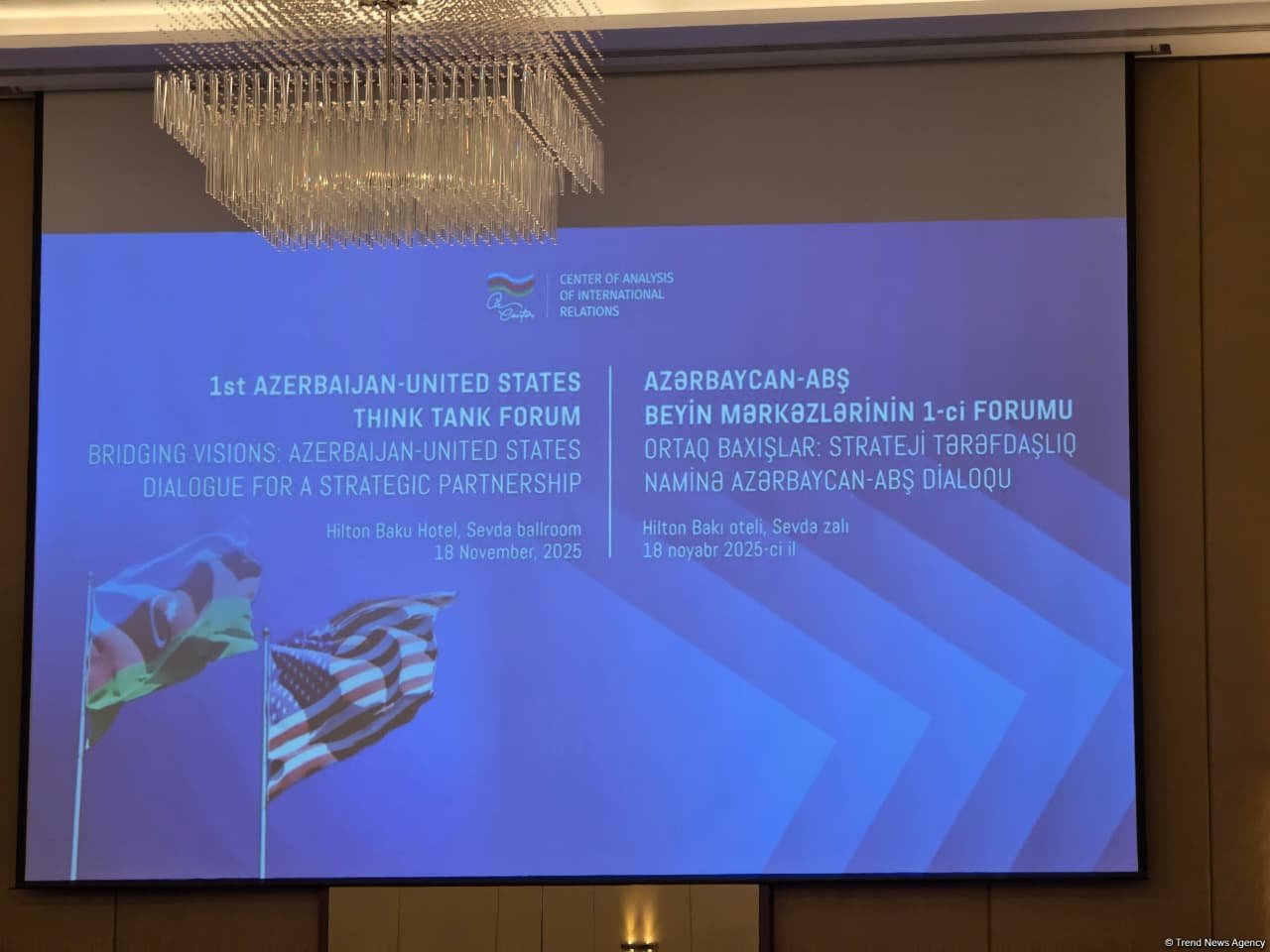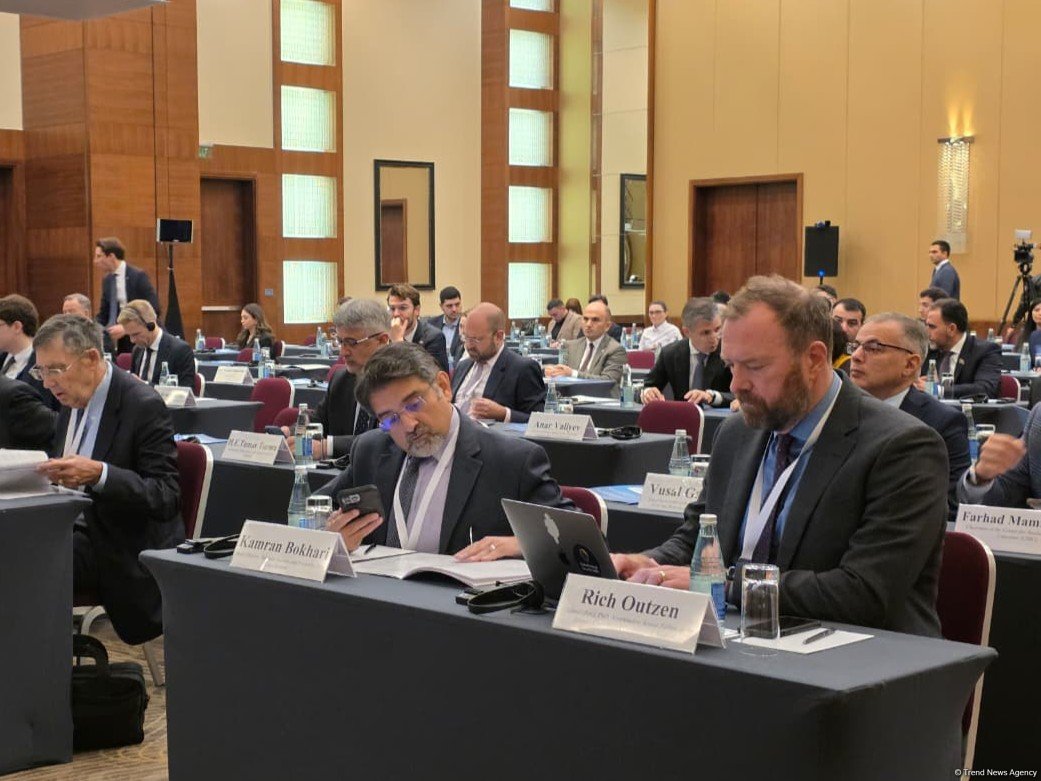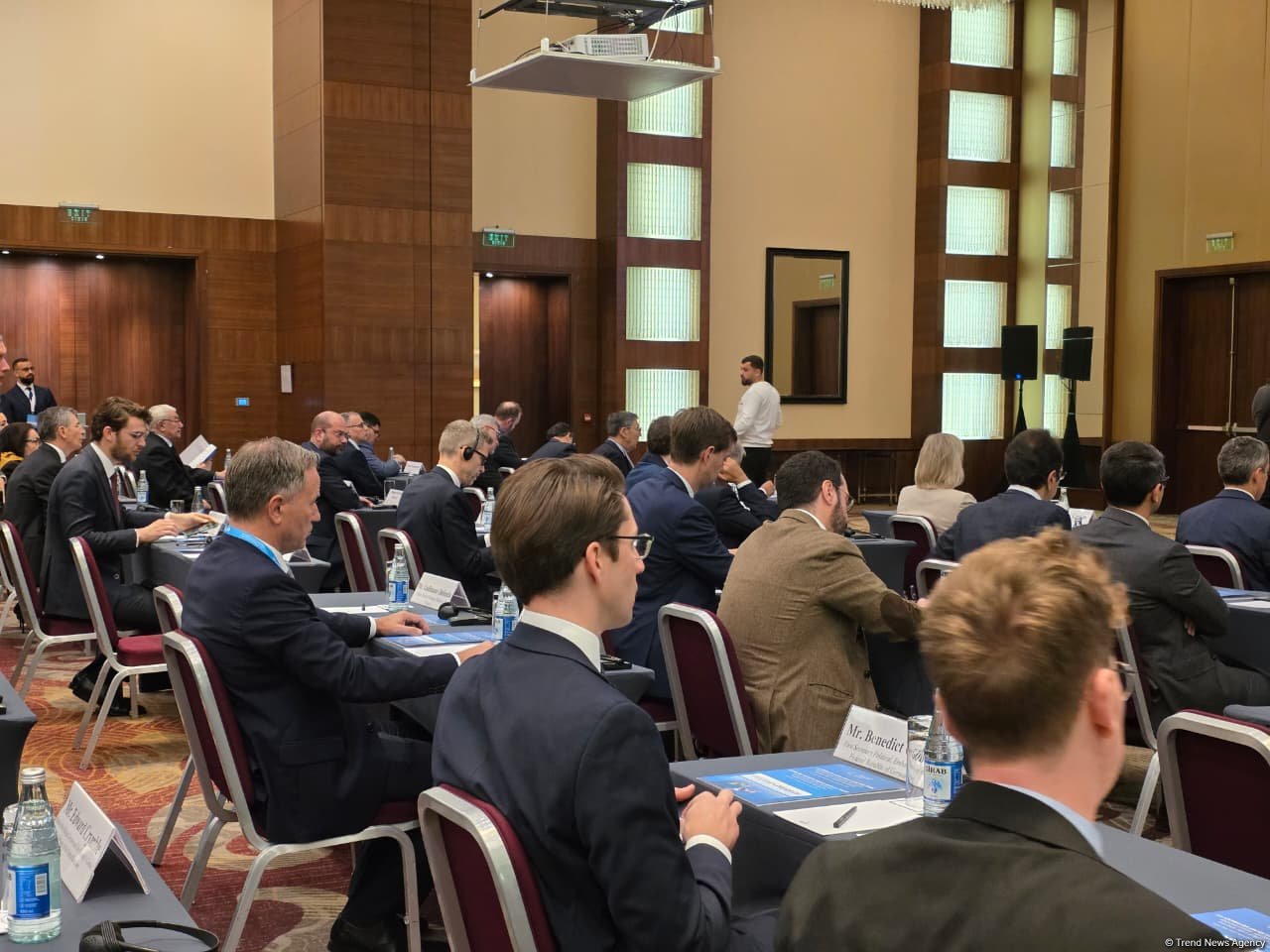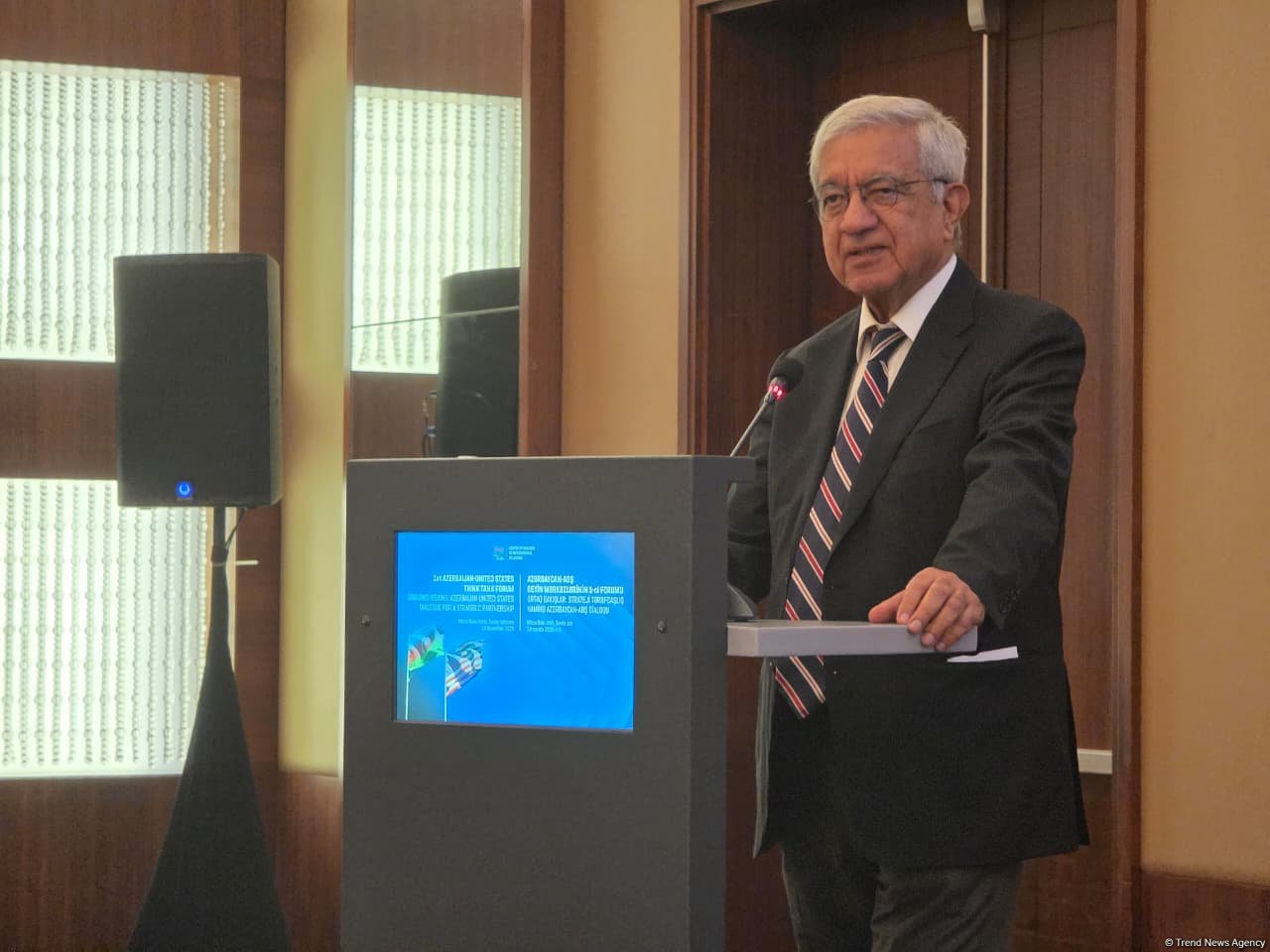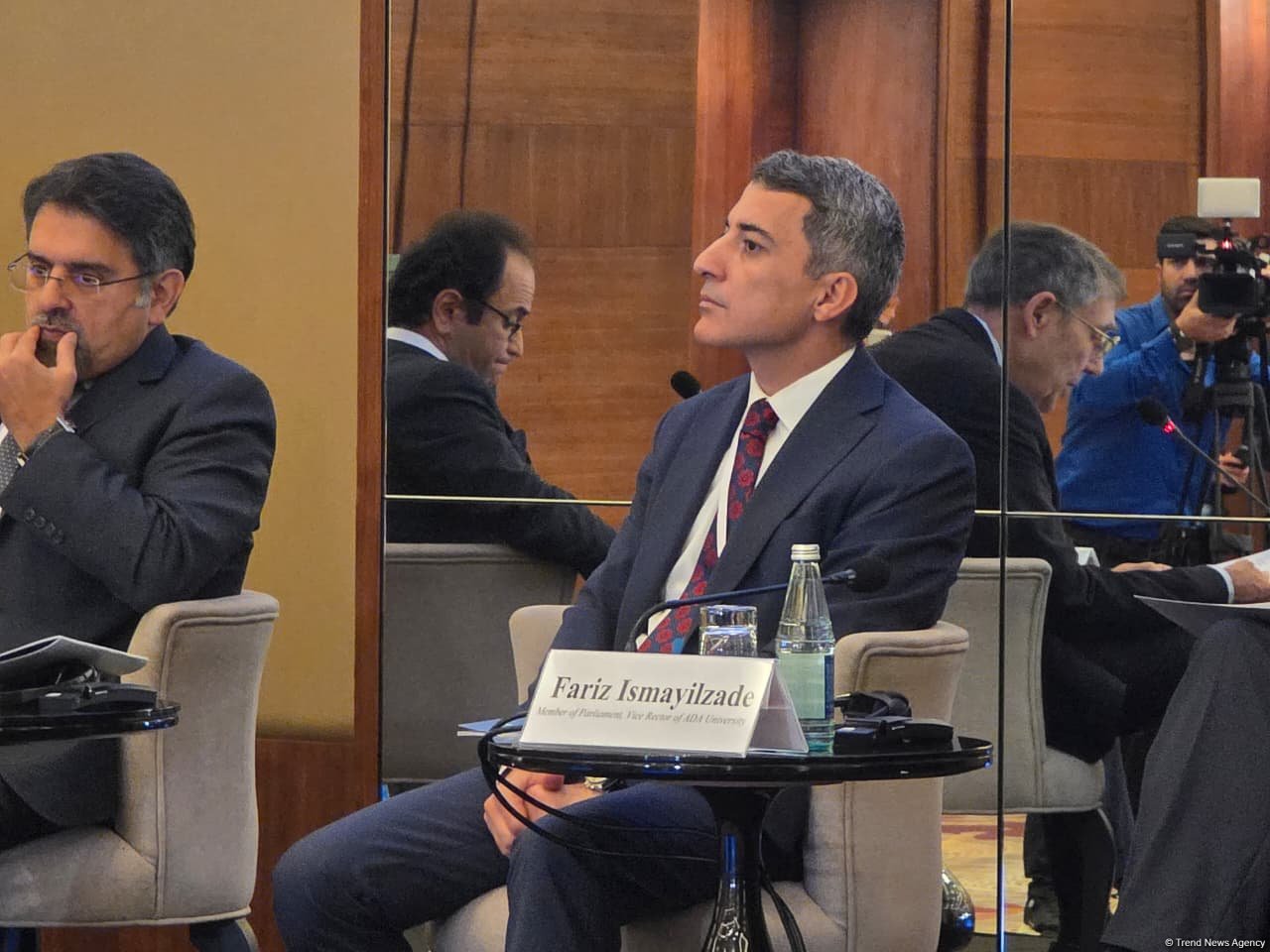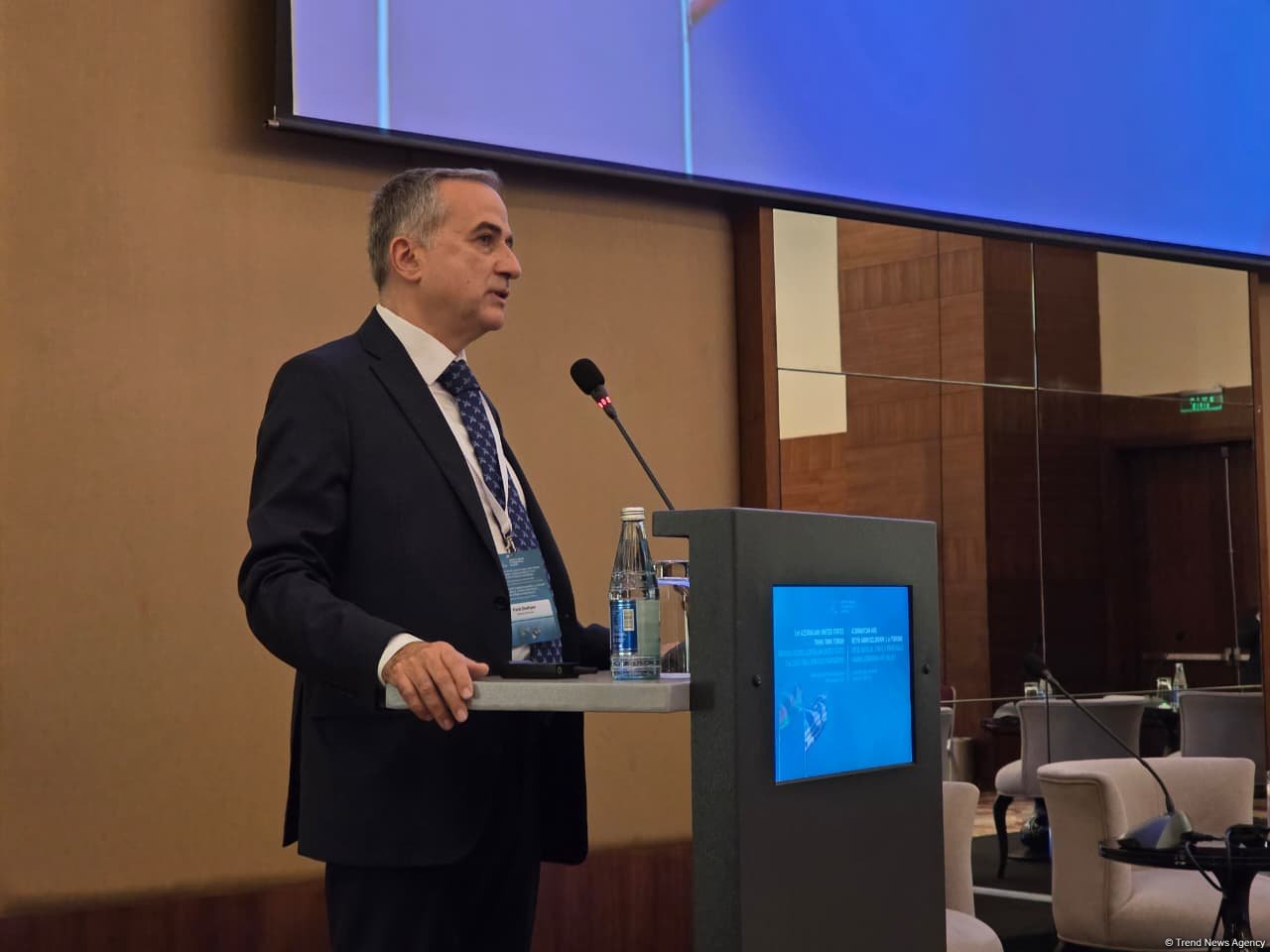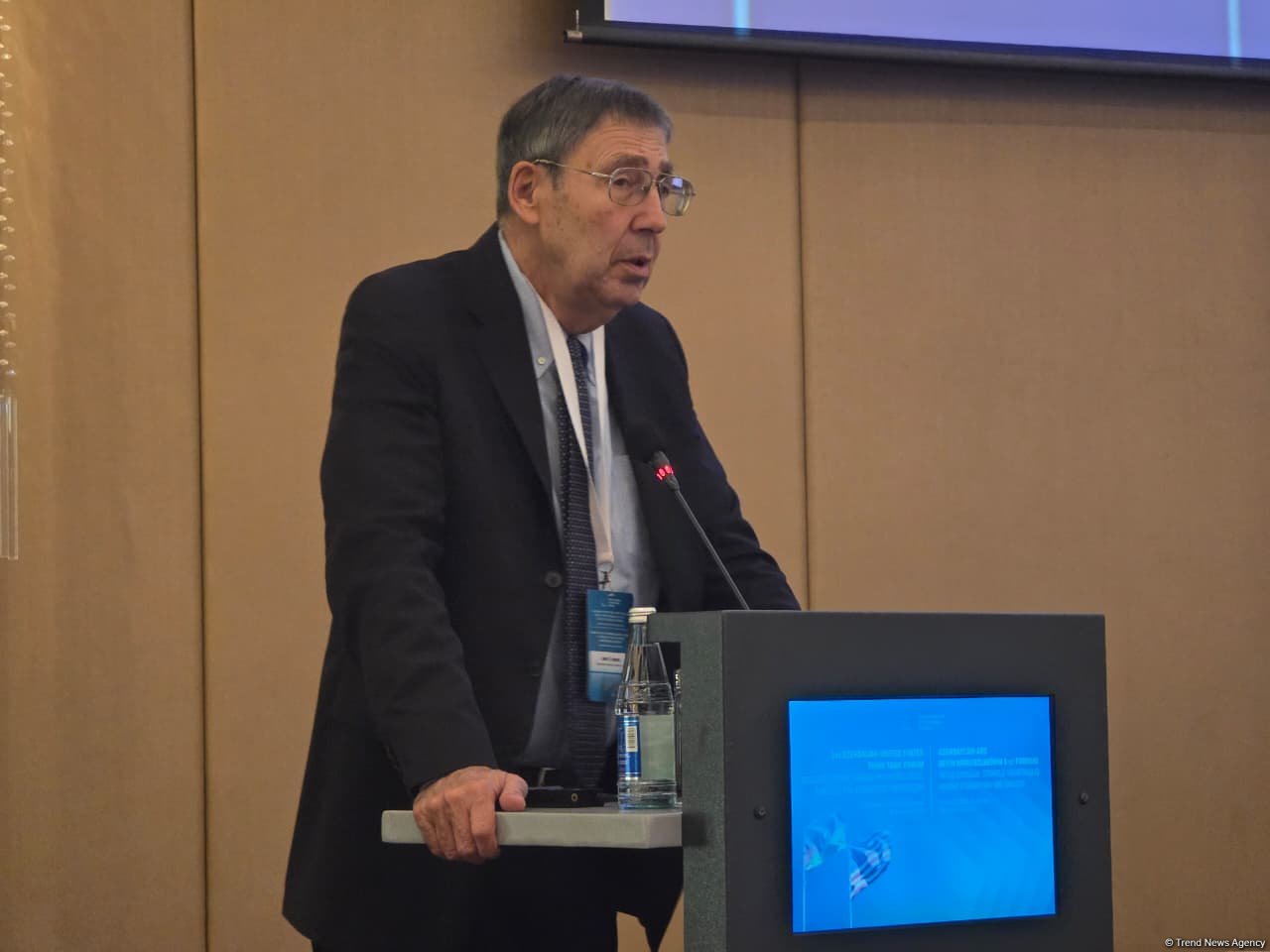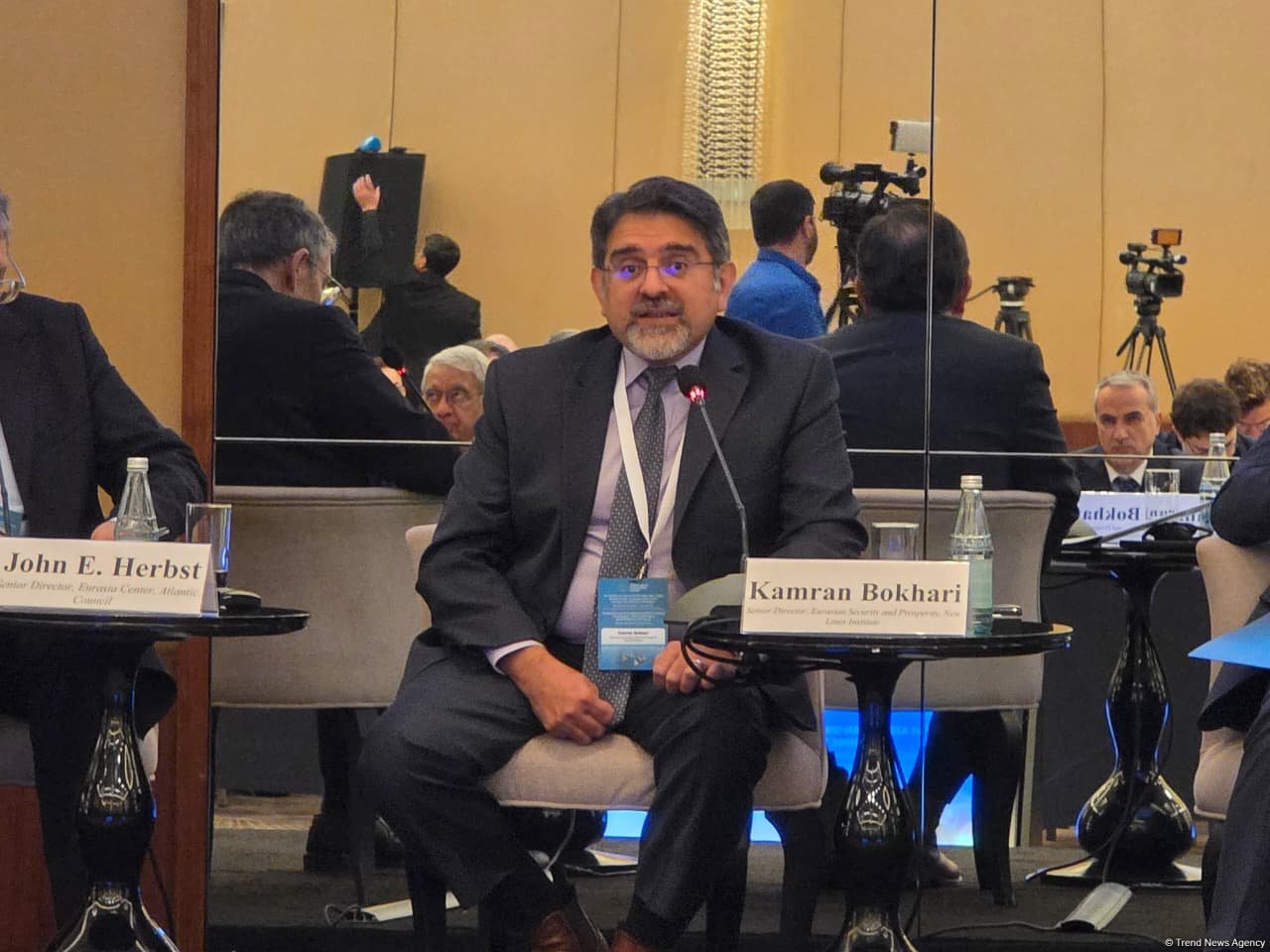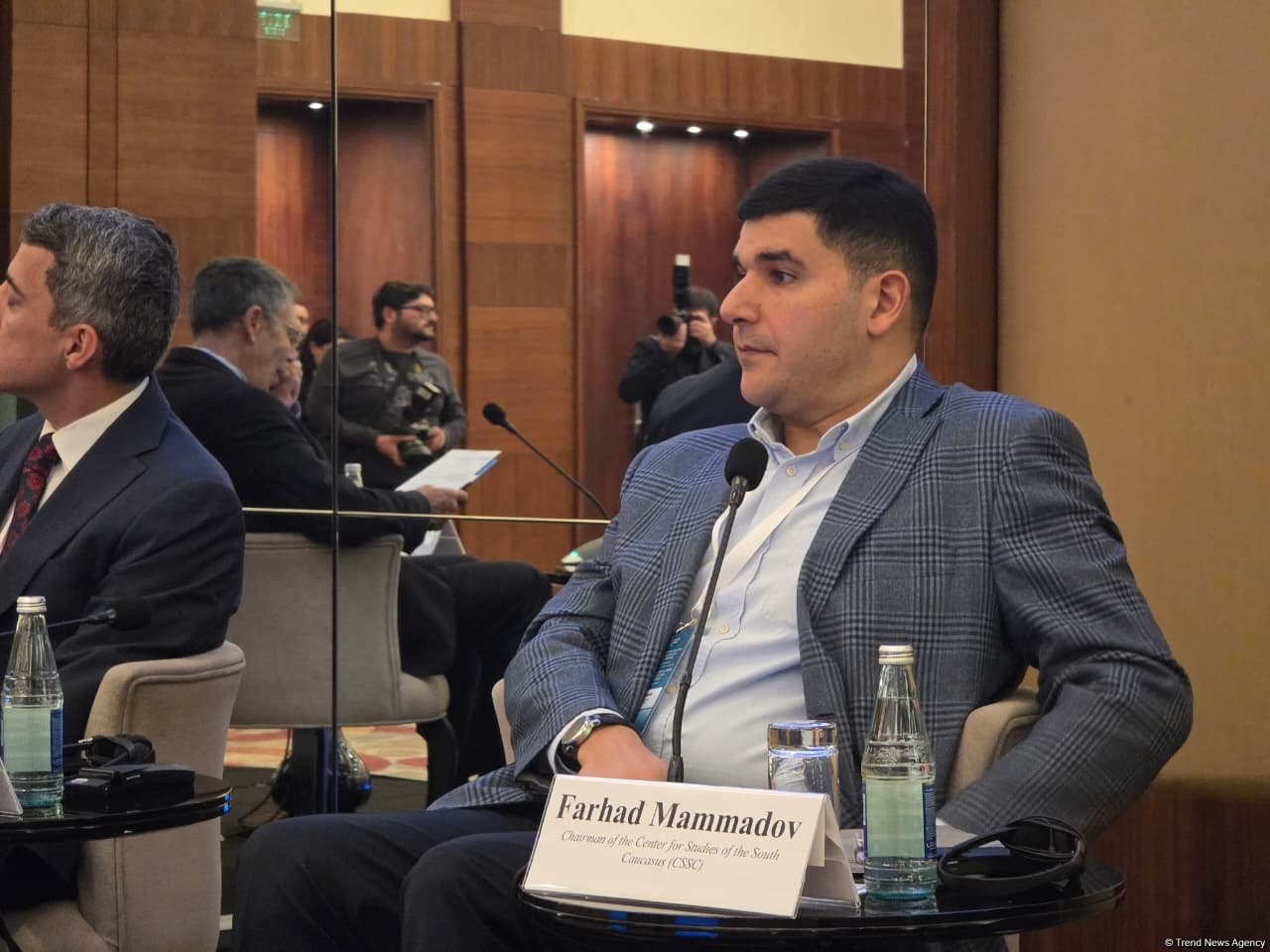BAKU, Azerbaijan, November 18. The 1st Azerbaijan-U.S. Think Tank Forum, organized by the Center for Analysis of International Relations, has begun in Baku, Trend reports.
The forum is devoted to the topic "Bridging visions: Azerbaijan-United States dialogue for strategic partnership".
Representatives from the government of Azerbaijan, local analytical institutions, and leading experts from prominent U.S. think tanks, such as the Atlantic Council, New Lines Institute, Hudson Institute, Central Asia-Caucasus Institute, and The National Interest magazine, are actively participating in the forum.
The discussions at the event will center on key outcomes of the 2025 Washington Summit, the ongoing peace process between Armenia and Azerbaijan, and Azerbaijan's pivotal role as a vital connector between Central Asia and Europe, particularly in the realms of energy, transportation, and digital technologies.
The forum's participants are engaging in dialogues about enhancing strategic partnerships, fostering regional cooperation, and exploring initiatives that promote sustainable development, security, and the economic integration of the broader Eurasian region.
In his opening remarks, Chairman of the Center for the Analysis of International Relations Farid Shafiyev pointed out that the signing of agreements between Azerbaijan and Armenia on August 8 in Washington creates a new basis for stability, peace, security, and cooperation in the South Caucasus.
The chairman emphasized the need to restore trust and establish communication between communities in the region, expressing the hope that the expert dialogue will help form the ground for a sustainable peace. He also noted that the U.S. experience of think tanks will be useful to the analytical community of Azerbaijan and invited U.S. analysts to exchange recommendations and joint research.
Addressing the participants, Hafiz Pashayev, rector of ADA University and former Azerbaijani ambassador to the U.S., noted that experience in working with leading U.S. think tanks has become an important element in the development of the Azerbaijani diplomatic school and the growth of bilateral relations between Baku and Washington.
Pashayev added that his early years as a diplomat in Washington had a decisive influence on his professional development. He emphasized that he considered the work of American think tanks located on K Street, such as the Center for Strategic and International Studies, to be a "real university" for him. "For me, it was a real school of diplomacy. I tried to attend as many events as possible, because every day there were discussions at these institutions from which I could learn a lot," he said.
The rector of ADA University also recalled that in the early 1990s, one of the key tasks of Azerbaijani diplomacy was to convey objective information about Azerbaijan to the American public. According to him, the work of the embassy and the creation of the U.S.-Azerbaijan Chamber of Commerce and Industry became an important part of this activity.
Hafiz Pashayev emphasized the role of American think tanks in training young Azerbaijani diplomats, noting that participation in their events helped to better understand the specifics of the U.S. and the peculiarities of decision-making in Washington.
Former U.S. Ambassador to Uzbekistan and Ukraine, Director of the Atlantic Council's Eurasia Center John Herbst noted that the expansion of the C5+1 format and the inclusion of Azerbaijan in the new regional cooperation architecture will be an important strategic event for both Central Asia and the South Caucasus.
Herbst recalled that two weeks ago, the first-ever US-Central Asia presidential summit (C5+1) took place in Washington, and a week later, in Tashkent, five Central Asian countries agreed to allow Azerbaijan to join the format of consultative meetings of heads of state as a full participant. "This is a significant step that strengthens regional ties and opens a new chapter in cooperation," he said.
In his turn, Vice-Rector of ADA University, Azerbaijani MP Fariz Ismailzade added that Azerbaijan steps into a new era of strategic cooperation with the U.S.
Ismailzade noted that a new phase of intensified relations with the U.S. is being observed, manifested in more frequent visits and expanded bilateral dialogue across various economic sectors. "Today, we see growing U.S. interest in Azerbaijan and dynamic cooperation in various areas, including technology, investment, and the development of new economic sectors," he emphasized.
Senior Director of the Eurasian Security and Prosperity Portfolio at the New Lines Institute Kamran Bokhari stated that strengthening peace between Azerbaijan and Armenia will create conditions for the implementation of strategic transport initiatives, including the TRIPP project (The Trump Route for International Peace and Prosperity).
"Consolidating peace between Baku and Yerevan opens the possibility of transforming the South Caucasus into a fully-fledged east-west corridor. Without sustainable peace, it is impossible to ensure the normal functioning of trans-Caspian logistics and the entire infrastructure of the Middle Corridor," he said.
Will be updated

